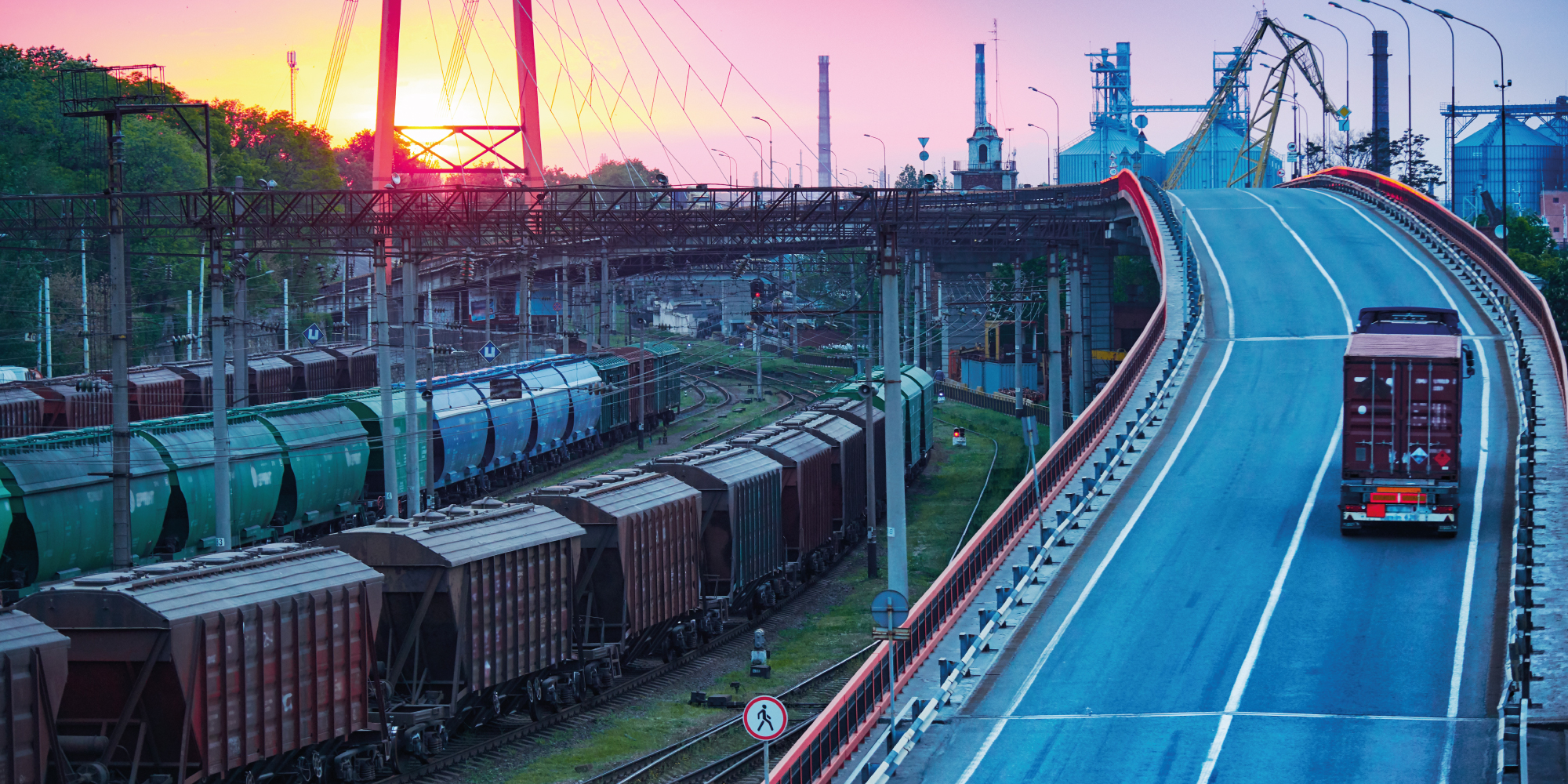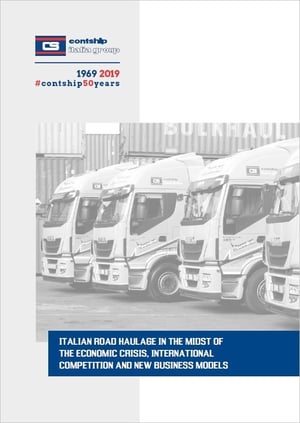In the previous article we tried to provide a definition of logistics, distinguishing it into various types depending on the process it deals with and where it is inserted within the industrial framework.
In this article, we want to focus on the part of logistics dedicated to the transport of goods, distinguishing between the different types of transport and looking at third party logistics actors.
The types of transport
Logistics processes are transversal to different industrial sectors, but, at the same time, the type of company and its size can determine considerable differences in the activities and in the complexity of the logistics and transport processes.
When choosing the type of transport, a logistics manager will have to consider the type of products and the specific needs in terms of delivery times.
Possible transport options differ from each other in terms of the speed of delivery, transport costs, the safety of the load and the size of the transportable load, as well as the environmental impact of the propulsion system.
The logistics manager’s goal is therefore to select the type of transport most suitable for the products or goods to be transported, in order to optimize times, reduce costs and be able to offer a competitive final product cost.
The main types of freight transport are:
-
air transport
-
maritime transport
-
transport by rail
-
road transport
Air transport is the most expensive type of transport, characterized by high delivery speeds. It is particularly suitable for small-sized and high-value products, or for highly perishable products that must travel long distances.
Maritime transport covers long distances but with very long times. The cost is much lower than air freight but has higher levels of cargo loss risk. This type of transport is particularly suitable for goods of medium or limited value and of big size or high quantity, which enable the freight to be loaded on containers or, as in the case of bulk goods, directly in the hold.
Rail transport can connect long distances with much faster travel times than the maritime option. The main limitations of transport by train lie in the lack of adequate infrastructures capable of guaranteeing the capillarity of the connection services and in the subsequent need to add other types of movements to allow the goods to reach their destination.
This type of transport, which can be combined or intermodal, is particularly suitable for loads of large dimensions or quantities, which have to travel on average long distances (above 250-300 km).
Road transport is by far the most used in Italy. It is characterized by the high capillarity of the service and the fact that it can also transport rather small volumes. The main limits of this type of transport are linked to the costs per kilometer traveled and to ethical issues concerning environmental sustainability, motorway congestion and the quality of working life of road hauliers.
Road transport can be divided into:
-
Primary, i.e. single destination, with a single departure and a single arrival
-
Secondary, also called groupage, in which the transport is no longer dedicated, but multi-destination and with multiple stops
To learn more and take part in the discussion, we invite you to download and share the White Paper
Another type of transport that deserves to be mentioned is river transport, which is almost unused in Italy, but which is widespread abroad. River transport is considered a safe, energy-efficient and relatively environmentally friendly means of transport.
According to the European Commission's Guidance document on Inland waterways transport and Natura 2000, navigable rivers play an important role in the transport of goods in many parts of Europe. Over 500 million tons of commercial goods are transported annually. Through a navigable network of over 40,000 km of waterways, navigable rivers connect industrial nodes and commercial centers and provide vital access to the sea.
Logistics partners
Given the complexity of its processes, logistics is rarely managed entirely by the company, but more and more often it is entrusted in part or in full to third parties, especially with regard to inbound, distribution and return logistics.
Third party logistics or contract logistics is understood as the set of sales of logistics services provided by the suppliers of these services to client companies and to other logistics service providers.
By focusing on the transport sector, it is possible to identify different players in logistics outsourcing, which can be distinguished by the level of integration of their services within the client's processes and by the extent of their service portfolio in covering the various logistics activities.
The main logistics partners are:
-
Carriers
-
Freight forwarders
-
3PL - Third Party Logistic Service Provider
-
4PL - Fourth Party Logistic Service Provider
-
MTO - Multimodal Transport Operator
-
Terminal operators, freight port managers, port and intermodal terminals
The Carrier (otherwise called transporter) is the company which physically performs a transport, whatever the modality, using its own or hired vehicles. Depending on the type of shipment used, the carrier may coincide with trucking companies, railway companies, shipping companies or airlines. The carrier, unlike the freight forwarder, is responsible to its customer for the arrival of the goods at their destination in the same conditions in which they left.
The Freight Forwarder is a logistics service provider that manages the shipment on behalf of the customer in all its phases, interfacing with the carriers and also providing storage and deconsolidation services for goods, if necessary.
The freight forwarder takes care of taking the goods up to their delivery at destination, passing through the completion of customs formalities in the case of import and export operations.
The 3PL (Third Party Logistic Service Provider) is a logistics service provider that offers an integrated set of activities, usually contiguous to each other, such as receipt, warehousing, order preparation, packaging, transport and final delivery. Unlike freight forwarders, the core business of 3PLs is the management of products before they are shipped. 3PLs are typically more integrated into the customer's business because they receive orders directly from its sales channels and then prepare the goods for shipment.
The 4PL (Fourth Party Logistic Service Provider) is a provider of integrated logistics services in partnership with the client company. Compared to 3PLs, it has superior technology and integration capabilities, takes over all customer logistics, restructures it and then entrusts the execution of operational activities to subcontractors. It responds to the customer of the overall high-level results (e.g. total cost of company logistics, capital invested in logistics, including stocks, etc.), for this reason it is also called a "logistics integrator".
The MTO (Multimodal Transport Operator) is a large multi-sector logistics operator, which includes at least the activity of freight forwarder, 3PL and often also that of intermodal carrier or in any case organizer of intermodal traffic, especially combined. It represents the traditional response to the growing need of companies to have a single point of reference, which responds to logistics costs and results and which today is also satisfied by 4PLs.
The terminal operator is the company that manages the large hubs for receiving and sorting goods. Depending on the transport modality combination, it is possible to distinguish between freight villages (large, publicly-owned urban freight distribution centers) and intermodal terminals (privately-owned rail-to-road hubs), port terminals and airport terminals.
Logistics outsourcing in Italy has experienced strong growth trends in recent years, especially in the transport sector, followed by warehouse activities.
According to the results of the Contract Logistics Observatory from the School of Management of the Politecnico di Milano, 23% of the responding companies declared that they use a Full Strategic Outsourcing approach, characterized by high autonomy of the supplier and a wide range of activities.
12%, on the other hand, prefer a Full Commodity Outsourcing approach to outsourcing, where the supplier has a low autonomy and the extent of activities is limited.
Contract logistics market, estimated at Euros 82 billion in 2018, is also characterized by strong dynamism, confirmed by the presence of various M&A (Merger & Acquisition) operations. In the period 2015-2018, the Contract Logistics Observatory identified 57 operations, 70% of which were concentrated in the last two years.
These operations often involve operators of different categories, leading to an overcoming of traditional distinctions and responding to the market needs for a greater simplification of logistics processes and identification of a single point of reference.






